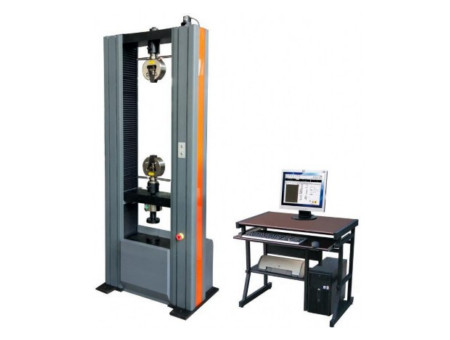
NewsInformation Center
Importance of pull testing in quality control
2023/07/12
Pull testing is a critical part of quality control in many industries, particularly those that manufacture products or components that are subject to mechanical stress or tension. Pull testing involves applying a tensile force to a product or component to measure its strength, durability, and reliability. Here are some reasons why pull testing is important in quality control:


1. Ensuring product safety:
Pull testing helps to ensure that products and components are safe for use by verifying their strength and ability to withstand mechanical stress. For example, pull testing can be used to test the strength of welds, fasteners, and other components to ensure that they can withstand the forces they will be subjected to during use.
Pull testing helps to ensure that products and components are safe for use by verifying their strength and ability to withstand mechanical stress. For example, pull testing can be used to test the strength of welds, fasteners, and other components to ensure that they can withstand the forces they will be subjected to during use.
2. Verifying product quality:
Pull testing can help to verify the quality of products and components by measuring their strength and reliability. This can help to identify any defects or weaknesses in the product or component that may affect its performance or lifespan.
Pull testing can help to verify the quality of products and components by measuring their strength and reliability. This can help to identify any defects or weaknesses in the product or component that may affect its performance or lifespan.
3. Meeting industry standards:
Many industries have specific standards and regulations that products and components must meet in order to be sold or used. Pull testing can help to ensure that products and components meet these standards and comply with regulatory requirements.
Many industries have specific standards and regulations that products and components must meet in order to be sold or used. Pull testing can help to ensure that products and components meet these standards and comply with regulatory requirements.
4. Improving product design:
Pull testing can also be used to improve product design by identifying areas where products and components may fail under stress. This can help to inform design changes or improvements that can enhance product performance and reliability.
Pull testing can also be used to improve product design by identifying areas where products and components may fail under stress. This can help to inform design changes or improvements that can enhance product performance and reliability.
5. Reducing product liability risks:
Pull testing can help to reduce product liability risks by identifying potential defects or weaknesses in products and components before they are released to the market. This can help to prevent product failures and reduce the risk of injuries or accidents caused by product defects.
Pull testing can help to reduce product liability risks by identifying potential defects or weaknesses in products and components before they are released to the market. This can help to prevent product failures and reduce the risk of injuries or accidents caused by product defects.
Overall, pull testing is an important part of quality control in many industries, helping to ensure the safety, quality, and reliability of products and components. By conducting pull testing as part of the quality control process, manufacturers can identify and address potential issues before they become larger problems, helping to improve product performance and reliability while reducing liability risks.
Previous: Factors Affecting ASTM D1044 Taber Abrasion Tester Test Results
N e x t : Common issues encountered in button snap pull tests



